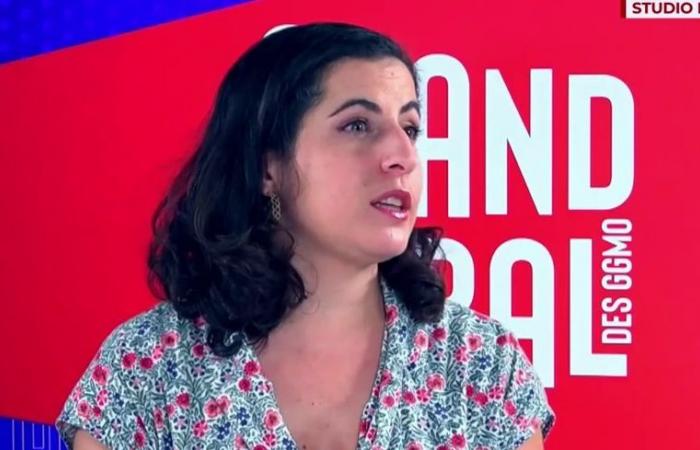In an interview in the big oral on i24news, Rachel Binhas, journalist in Marianne, lifts the veil on one of the most disturbing aspects of the post-October 7: French indifference in the face of his own nationals of Hamas. His book “French victims of Hamas, their history, our silence” explores this media, political and societal shadow area with rare lucidity.
An investigation born of a worrying silence
“51 French lost their lives from October 7, as part of the massacres committed by Hamas,” recalls Rachel Binhas, who went to Israel several times to collect the testimonies of relatives of victims. An approach that was not going well in a context where France seemed to look away from its own nationals affected by this tragedy. His book is not a simple chronicle. It is a deep question on this “deafening silence” which surrounded these French victims, a silence which contrasts with the national mobilization observed during other hostages involving French citizens. “We remember the mobilization around Ingrid Betancourt,” she notes. “We opened the television news with a spot reminding us of the day of detention. And no one asked questions.”
The great taboo of sexual violence
Rachel Binhas also addresses in his work one of the most difficult aspects and yet systematically eluded of the attacks of October 7: sexual violence perpetrated against victims, men and women combined. “Thank you for your question, because you are only the second on perhaps twenty or thirty journalists to ask me,” she says, revealing how taboo is that this subject remains.
It testifies to an frosty reality: “All women who come back from the Gaza Strip, they are made to pass a pregnancy test and we put them under anti-HIV treatment, MST, IST.” Sexual violence has also touched men, “a taboo in taboo” according to her, which denounces in passing the indifference of certain Western feminist movements which refused to recognize these facts.
Journalist under threats
-His investigation earned him the target of threats. “The Marianne newspaper was exemplary, since officials decided to file a complaint following the threats received. I also did it,” she explains before revealing a disturbing flaw in the judicial system in the face of digital platforms: “The investigators, with the prosecutor, ask the lifting of anonymity. Twitter refuses. The case is classified.” This digital impunity illustrates another form of denial, that of platforms which, in its words, “decided to do justice, in a sense, in place of French justice.”
The modern “marranism” of the Jews of France
Rachel Binhas’ investigation also highlights a worrying phenomenon which it describes as “modern marranism”: “from October 7 and until today, Jewish French, more or less practitioners, invisibilize, hide, mask their practices.”
This tendency to fade, to conceal her Jewish identity for fear of reprisals, is, according to her, a potential break in cultural and religious transmission. “The problem is when you get there by obligation, of course, not by choice, ultimately it is the very transmission that will be impacted.”
A France at a crossroads
The interview ends with a note of cautious optimism. Faced with the Jewish intellectuals that she interviewed and who show themselves pessimistic about the future of the Jews in France, Rachel Binhas says he is “perhaps naive” but refuses capitulation. “Because it is not for the Jews or for the Israelis, it is for France,” she insists. His book thus constitutes a call for collective action, a reminder that “October 7 is a French event” which affects fundamental values of the Republic, beyond the Jewish community alone. In an often polarized media landscape, his voice brings an essential perspective on the dead angles of our collective treatment of this tragedy.
By questioning our ability to recognize all our victims with the same empathy, Rachel Binhas finally questions what makes the essence of the French social contract. A reflection whose urgency has never been so palpable.








